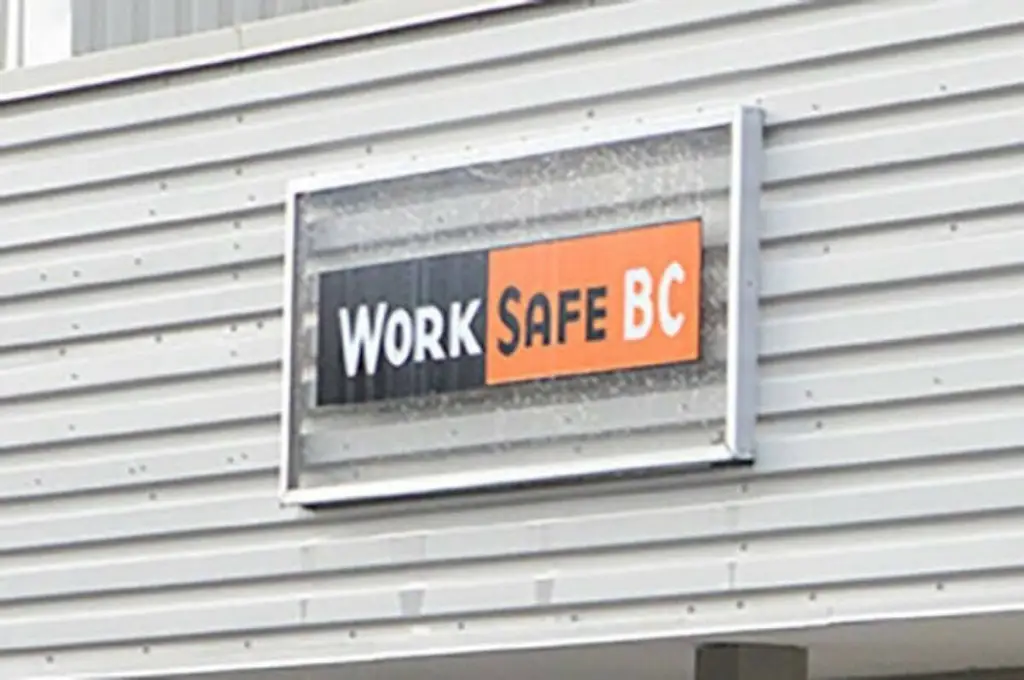Copyright Charleston Post and Courier

CHARLESTON — After an expensive and incomplete renovation at Mount Zion AME Church in which a historic pipe organ went missing, some of its members are calling for a change in leadership and a financial investigation. The church on Glebe Street in downtown Charleston has been led since 2015 by the Rev. Kylon Middleton, who also serves as chairman of Charleston County Council. Church attendance has dwindled in recent years, making a smaller congregation responsible for paying a significantly increased mortgage and other church costs. Some members complain about what they see as Middleton’s financial secrecy and high-handed manner of running the church. They have accused him of ignoring concerns from the congregation, telling lies, and engaging in retaliatory, humiliating tactics to shore up his power. These criticisms stand in contrast to the reputation Middleton had cultivated as a compelling public speaker and politician who came to lead Mt. Zion a few months after a racially-motivated massacre in Charleston in June 2015. Nine people were shot dead at nearby Emanuel AME Church, including Middleton’s friend and fellow pastor, the Rev. Clementa Pinckney. In the wake of this tragedy, Middleton believed his new role at Mt. Zion could be transformational for the community. “As the head of the church, it is my job to provide direction,” Middleton said years later, “and so we pivoted and started offering a ministry that can then become that bridge of trust, that bridge of transformation, that bridge of racial healing.” But some of Middleton’s moves as pastor have been a bridge too far for his members. They accuse him of ignoring their concerns about finances and emptying the church of historic materials without explanation, including the pipe organ, pews and railings. Since becoming pastor of Mt. Zion, Middleton has done much more than serve as a Sunday preacher. In 2015, he accepted an invitation to join the Illumination Project, a city initiative to improve relations between police and the public. Three years later, he became the project’s leader. Then, in 2020, he won election to County Council, representing parts of West Ashley. He was re-elected in 2024 and soon named chairman. Middleton also became an administrator for the Berkeley County School District in 2022, where he is chief officer of student support services. As he juggled these responsibilities, Middleton organized and supervised a million-dollar renovation of the church, a job so substantial that Mt. Zion’s congregation was forced to temporarily relocate their worship services. Mt. Zion’s former pastor, John Paul Brown, said he was hopeful when he first learned that Middleton would lead the church. Middleton seemed like a “nice, smart, young man,” said Brown, someone who “could take Mt. Zion to the heights I could not take it.” Brown, 72, had attended Mt. Zion since he was 10 years old, and he served as its pastor for more than a decade until retiring in 2014. At the end of his tenure, Brown said, more than 150 people reliably filled the pews of Mt. Zion each Sunday, and the church had five separate choirs. The church’s debt, he recalled, was about $118,000, and he provided monthly financial reports to members. Nowadays, less than 50 people typically attend services in person, and there is just one men’s choir, recently reconstituted. According to members familiar with the church’s finances, Mt. Zion now owes more than $1 million to lenders. As the church’s debt has grown, so have Middleton’s list of critics, some of whom are calling for the pastor to be removed and the church’s books examined. A church in need People began attending services at Mt. Zion in 1882, when members of Emanuel AME Church on Calhoun Street split from that oversized congregation to form their own church. The new congregation purchased a 40-year-old brick building on Glebe Street and founded Mt. Zion AME Church. When Middleton arrived nearly a century-and-a-half later, the church was showing its age. Earthquakes, fires and hurricanes — as well as the passage of time — had taken their toll on the structure. Water pooled around the building and infiltrated its cracked walls. Rickety pews were on the verge of collapse, and stairs were failing. The church kickstarted a repair plan and borrowed nearly $1 million in 2020, according to mortgage records, though a portion of this sum would be used to pay off the church’s existing mortgage. Money arrived from other places, too, including $250,000 in donations from one supporter. Some of this money went toward repairs to the church. Then, the church borrowed another $475,000 in 2023 for a second round of repairs, some of which was used to redo work from the first round. Former Mt. Zion member Phillip Smith said he helped oversee the budget for this “very intense renovation and restoration project” when he was elected to the church’s board of trustees in 2022. Smith seemed well-suited for this task. He initially became a church member in 2011 while studying historic preservation at the College of Charleston. He then obtained a graduate degree in architecture from the University of Notre Dame and returned to Charleston in 2020 as an assistant professor of architectural design at the American College of the Building Arts. He rejoined the church soon after. Smith studied the renovation plans and budget and was dismayed to find that some cost and time estimates seemed inflated. Other improvements had no costs attached to the work. Smith highlighted $50,000 in repairs he found unnecessary. He told Middleton and other church members that the project was behind schedule and lacking focus. Smith also told Middleton he adamantly opposed a plan to alter the original stairs at the front of the church, explaining he could not abide the erasure of the building’s historic details and materials. Yet a short time later, Smith said, he spotted construction workers building a new set of stairs over the church’s original steps. He complained to the city’s Board of Architectural Review, which oversees exterior changes to historic buildings. This prompted the city to issue a stop-work order for the unapproved alteration, which Smith said also violated the city’s building code and was unsafe. Soon after, Smith received his own order to stop work; he had been removed from the trustee board. “I see what’s going on here,” Smith said he thought to himself upon receiving his dismissal letter from the church. “You’re removing me from the board because I did my job as a board member.” The ascendant pastor On paper, Middleton also seemed like a wonderful fit for Mt. Zion AME Church. His appointment as pastor was a homecoming for Middleton, who purportedly grew up in Charleston as something of an ecclesiastical and academic prodigy. Middleton began preaching at age 8, delivered his first sermon three years later and became a pastor in North Charleston at age 16. Meanwhile, he graduated from Burke High School at 15 years old. According to a lengthy biography of Middleton once posted on Mt. Zion’s website, he graduated from the College of Charleston at 18 – the age at which most people are entering college. Middleton worked at his alma mater for a few years, then taught in public schools in South Carolina and North Carolina. He eventually became a school administrator. At the same time, he served in assorted leadership positions within several AME churches and, according to the biography, earned master’s and doctorate degrees from both Duke University and the University of North Carolina. In November 2014, Middleton resigned his position as a principal with Harnett County Schools in North Carolina as part of a confidential separation agreement. He then headed back home to South Carolina, where he served as the lead pastor of Hopewell AME Church outside the town of Hemingway, in Georgetown County. Hemingway resident Mary Palmer credits Middleton for bringing her husband and son into the church as tithe-paying members. She enjoyed his preaching so much that she exacted a promise from him to deliver a eulogy at her funeral. She still sometimes watches him on the livestream from Mt. Zion on Sundays. “I didn’t find no fault with him,” said Palmer. “I wish I could get him back to my church.” Palmer’s fellow church member Cubit Vereen Jr. described Middleton as a “go-getter” who rallied members of the congregation to support the construction of a new $3.5 million church. Palmer credited Middleton with working collaboratively with members of the congregation instead of issuing dictates. Some leaders act without considering others’ point of view, she said, but “he wasn’t like that.” Middleton declined to be interviewed by The Post and Courier and instead provided two statements in October that partially addressed a list of questions from the newspaper about his biography and work as a pastor. Within this list were queries concerning aspects of Middleton’s educational background that did not match university records. According to the College of Charleston, Middleton graduated in 1995, when he would have been 20 years old, not 18. And according to both Duke University and the University of North Carolina, Middleton earned master’s degrees but not doctorate degrees. Middleton did earn a doctorate in education leadership from Charleston Southern University in May 2023, though this accomplishment was not mentioned in his church biography. Regarding the above-mentioned discrepancies, Middleton replied that the newspaper has “brought to my attention a few inaccuracies in biographical information previously posted on the Church’s website. Those have now been reviewed and corrected to ensure clarity and accuracy moving forward.” Middleton’s updated biography on the church website no longer mentions that he graduated from The College of Charleston at 18. It no longer mentions that he earned doctorate degrees from Duke University and the University of North Carolina. The temperamental pastor While Middleton impressed members of his Georgetown County congregation as earnest and pleasant, some worshipers at Mt. Zion came to regard their new pastor much differently. When architecture professor Smith received his dismissal notice from the board of trustees in May 2023, he was surprised to see that the letter also chided him for insufficient giving. It noted that he donated $900 to the church in the first five months of the year. Smith was stunned. In addition to serving as a trustee and helping oversee the church’s renovation, he belonged to multiple choirs and sang every Sunday. He said he tithed when he could, despite owing more than $300,000 in student loans for his graduate school education. “Time, talent, I’m giving you all of that,” Smith said, recalling the sting of the letter. He was not the only one to be shamed for not donating more to the church. Church member Robert Mitchell, who serves on Charleston City Council, also lost his trustee status after tangling with Middleton. In a letter to Middleton, Mitchell complained of being “humiliated and degraded” before two other church members during an April 2023 meeting in which the pastor allegedly criticized the size of Mitchell’s donations. “I informed you my giving amount was low due to personal reasons, and I did not feel compelled to explain further. I believe it is a private matter between God and me,” wrote Mitchell, who has belonged to Mt. Zion for 65 years. Mitchell, who declined to speak with The Post and Courier, wrote that Middleton was secretive about the church’s renovations and had a go-it-alone attitude. This left the renovations “in shambles,” he stated. Mitchell’s complaints echoed concerns from Smith, who said in an interview that the renovation “was mismanaged from the beginning.” Smith said he remains bothered that church bank statements and other financial documents are reportedly sent to Middleton’s home, not Mt. Zion. “There’s not one person aside from the pastor that knows the full financial picture of Mt. Zion,” said Smith. “Transparency is virtually nonexistent.” The need for financial transparency has been a common refrain within the AME church, which has weathered money-related scandals in recent years. Complaints accompanied the accounting of money collected by Mother Emanuel church in the wake of the 2015 massacre and the construction of a multimillion-dollar building on the campus of AME-affiliated Allen University in Columbia, which is now under investigation by the FBI. In August, a federal judge approved a settlement plan that allowed AME clergy and staff to recoup $60 million in retirement funds after nearly 70 percent of the money went missing in a separate church scandal. At Mt. Zion, members have grown upset at Middleton’s refusal to answer questions and respond to their concerns. Cartha Cartwright once felt warmly toward Middleton, whom he credits with helping him recover from a difficult time in his life. But he grew frustrated by what he described as Middleton’s imperious manner and eventually had a falling out with his friend. Cartwright said that church members aren’t looking for perfection from their pastor, just honesty. “He just does not say, ‘I’m wrong, I’m sorry, I should not have done that to you,’” said Cartwright. “He knows better. But sometimes when we don’t think anyone’s holding us accountable we do what we want … We say we know God but we don’t really fear God.” In a statement, Middleton wrote that the church’s finances are regularly reviewed by church trustees and stewards, by the presiding elder of the district, and by the bishop who oversees South Carolina. “These layers of accountability ensure accuracy, compliance with AME Church financial protocols, and transparency for our members,” Middleton wrote. “To date, no financial discrepancies or adverse findings have been reported by any of these reviewing bodies. In addition, those records have been made available to members of the congregation.” Show me the money On Father’s Day in June, Middleton led a long Sunday morning service. About 30 people filled the church, including the members of the men’s choir, who, along with an organist, performed a spirited musical program. Pastor Middleton matched their energy, breaking a sweat during his sermon in which he preached the importance of standing strong in the face of challenges. “We were built for this!” he told the congregation, wiping his neck with a towel again and again, having worked himself up into a state of excitement. Money matters came up often during the service, as they do in many churches. A freestanding monitor advertised a plea for more donations, asking members to “sow” $100 a month beyond their tithing toward a mortgage reduction fund. “Let’s all dig a little deeper and be cheerful givers,” read a message on the monitor. At one point, a member presented a check for $1,000 from the men of Mt. Zion, to be used to pay off some of the church’s mortgage. Middleton then reminded the congregation he does not receive a salary from Mt. Zion and that financial reports are regularly e-mailed to church members. Yet this pledge of financial transparency fell flat for Joseph Wescott, 89, who has been a member of Mt. Zion for more than 80 years, save his 20 years in the U.S. Air Force. He counts four generations of his family as part of the congregation. In 2017, Wescott served on a committee to eliminate the church’s mortgage, which he recalled to be about $215,000. He collected money with another member, but was surprised at one point to see a transfer of about $12,000 from the fundraising account. He and the other member asked Middleton for an explanation. “Well, Rev, let us know where the money went,” Wescott recalled telling Middleton. “Show us the receipts.” Middleton allegedly refused and told Wescott, “I don’t have to do that.” In response, Wescott and the other member quit the debt elimination committee. “He didn’t want to reveal where the money went … If he couldn’t tell us the where the money is being spent we didn’t want no part of it,” said Wescott. Wescott said he supports an audit of the church’s finances and would like to know the fate of the money he raised for the church. He said constant fundraising and a lack of transparency are not a recipe for success. “When you ask people for so much money, people get tired of it,” he said. The Rev. Robert Reid also supports an investigation of the church that he has belonged to his entire life. He wrote to Middleton requesting an audit and the return of $5,000 he said he donated to the church. Reid also wrote to the State Law Enforcement Division, requesting a criminal investigation of the church’s finances. SLED declined his request in March. “Your best course of action may be to have a forensic audit completed. Once completed, you may resubmit the request along with the findings of the audit to SLED,” wrote Capt. Bryan Jones of SLED’s Investigative Services. The missing pipe organ Money is not the only thing said to be missing at Mt. Zion. During the church’s renovation, historic materials such as its altar rail, choir rail and original pews were removed. Many of these items were “trashed,” said Smith, the architecture professor. He estimated the church lost 85 percent of its original furnishings, some of which had been handmade by members decades ago. Also taken away was the church’s Möller pipe organ, installed about 1937. According to Charlotte-based organ technician David Nelms, who serviced the Möller for years, Middleton wanted to move the organ from the front of the church to the rear, where it could be enlarged. After extended conversation, Nelms said, the church hired him to disassemble the organ, load it onto a truck and deliver the instrument to the Reuter Organ Company in Lawrence, Kansas, which prepared plans for the project. He said he left behind, at Middleton’s request, the fancy oak casework that surrounded the organ. It had been made by the grandfather of a current church member. “It was a pretty intense project,” said Nelms, who demanded and received payment before heading west. Once in Kansas, the organ was placed in climate-controlled storage. Then, the project stalled, Nelms said. “Timelines continued to change and scope of work continued to change,” said Nelms. “A lot of wordplay from the pastor … Communication with him was awful. You’d leave messages and messages and no reply.” As the renovations stretched on, the organ company sent repeated invoices and certified letters to Mt. Zion for the storage of the organ, most of which were ignored. “Getting payment was terribly difficult,” said Nelms. Yet the church had plenty of money to repair the organ, at least since February 2023. That’s when worshiper Polly Sheppard wrote a check to Mt. Zion for $200,000, specifically earmarking the funds for organ work. Sheppard, who now lives in Florence County, attended Mt. Zion for eight years after surviving the 2015 massacre at Emanuel. In 2021, she received a $5 million settlement from the U.S. Department of Justice for the government’s failure to stop church shooter Dylann Roof from obtaining the firearm used in the massacre. In a September interview, Sheppard said the $200,000 gift for the organ restoration was suggested by her husband. This gift followed a $50,000 donation she gave Mt. Zion a year earlier for general church repairs. “Before he died, he wanted to restore the pipe organ,” Sheppard said of her husband, Milton, who died in July 2023. Yet the organ never piped another tune. Around 18 months after the organ arrived in Kansas, the Reuter Organ Company decided to wind down its operations. The company advised Mt. Zion that it needed to take back its pipe organ, which was worth as much as $10,000, according to Nelms, the organ technician. The organ company received no response from Mt. Zion, so the organ was destroyed. “The organ is nonexistent. It went to the dump, literally,” said Nelms. “I don’t know of any other time when an organ was just trashed.” Nelms feels badly about the episode but maintains the fault belonged to the church entirely. In hindsight, he said, he recognizes there were red flags, such as Middleton’s insistence that Nelms speak with only him at Mt. Zion. Sheppard, too, is bothered by how her money was handled, though she said she does not regret making the gift if it somehow bettered the church. “I never got a straight answer of what they did with the money,” she said. Sheppard said the church didn’t refund her $200,000 after the pipe organ was destroyed or give notice of how the money was redirected, even though she took steps to safeguard those funds. When she visited the refinished church some time after making her gifts, Sheppard was dismayed to see the original pews had vanished, along with the oak casework for the organ and the organ itself. “It’s not what I expected,” said Sheppard. “It’s not my husband’s wishes.” Middleton did not specifically respond to allegations that he had retaliated against trustees and church members who disagreed with his tactics. He also declined to answer questions about the missing organ and how Shepperd’s donations of $250,000 has been used. “Many of the matters you’ve raised involve confidential personnel, financial, or pastoral issues that are not appropriate for public discussion,” wrote Middleton in a statement. “I trust you will understand the importance of maintaining those boundaries for the protection of the Church and its members.” Lingering questions and a new beginning? A few months after Sheppard’s donation of $50,000, Middleton sought to leave the church. In early 2022, he hosted a Special Call Church Conference. The meeting was unpleasant for Middleton, as he was told that he had lost the support of the congregation. He expressed his distress in a letter to members. “My spirit remains troubled after hearing articulated in tonight’s meeting that the congregation no longer has confidence in the Pastor,” wrote Middleton. “No Steward challenged this statement, so the comment lingered with me for the entire drive home. It is my sincere prayer to never be a stumbling block to anyone, much less an entire congregation.” Middleton said he would ask to be reassigned in the coming months, but would also “continue on through the renovations, to see that process through.” He struck an optimistic tone, despite being unwanted. Middleton said he would ask the bishop and presiding elder to be relieved so those church leaders “can work with the congregational leadership to find a suitable minister with whom y’all can SOAR!” But Middleton did not leave the church, and problems continued. According to church members, bills and salaries at the church have gone unpaid because of other costs the congregation faces on a regular basis, including mortgage payments and quarterly dues to the larger AME church. The recurring financial difficulties and a lack of communication from the pastor have frustrated old and new members alike, though leaders of the AME church in South Carolina will not acknowledge or discuss those concerns publicly. Bishop James Davis, who oversees the AME church in South Carolina, and Presiding Elder Juenarrl Keith did not respond to inquiries from The Post and Courier about Mt. Zion’s leadership and financial condition. Some church members have raised their eyebrows over Middleton’s spending, noting his busy travel schedule and his purchases of two late-model Mercedes automobiles in 2022 and 2023, as well as a house in West Ashley for which Middleton paid $377,400 in May 2022. In February, a lien of $1,800 was placed on the home by a property owners association. Middleton has been the subject of a number of legal actions for unpaid rent or other debts in South Carolina and North Carolina. Beyond serving as an unpaid pastor, Middleton earns $166,114 from his job at the Berkeley County School District. He also receives $26,142 a year as chairman of Charleston County Council. With so many questions surrounding the church and Middleton, some members are ready for a new beginning. Trust between the pastor and congregation has, like the pipe organ, been shattered. “You’ve got to inform people and let people know what you’re doing if you want them to stay. That’s why I think people walked away,” said Wescott, the Air Force veteran who has attended Mt. Zion since he was a boy. “I would say a change in leadership would do good.” On Sept. 14, during Sunday service at Mount Zion, Middleton spoke from the pulpit about the importance of giving and seemed to allude to an upcoming transition at the church. “So God, we bless you, because the inbox of the new pastor is going to be full,” said Middleton. “And she cannot be successful without the resources, so God bless the members, to remember that regardless of who the pastor is, the ministry of God moves forward …” But a new pastor has yet to arrive at Mt. Zion, and whether or not a new leader is coming remains unknown. In any event, Middleton said he will carry on and not be deterred by complaints. “I understand that taking leadership roles invites criticism,” he wrote to the newspaper. “I believe that attempting to respond to and satisfy each criticism and each critic, however motivated or informed, is not possible or productive. Rather, I choose to continue forward in my roles in the best way I know how.”



